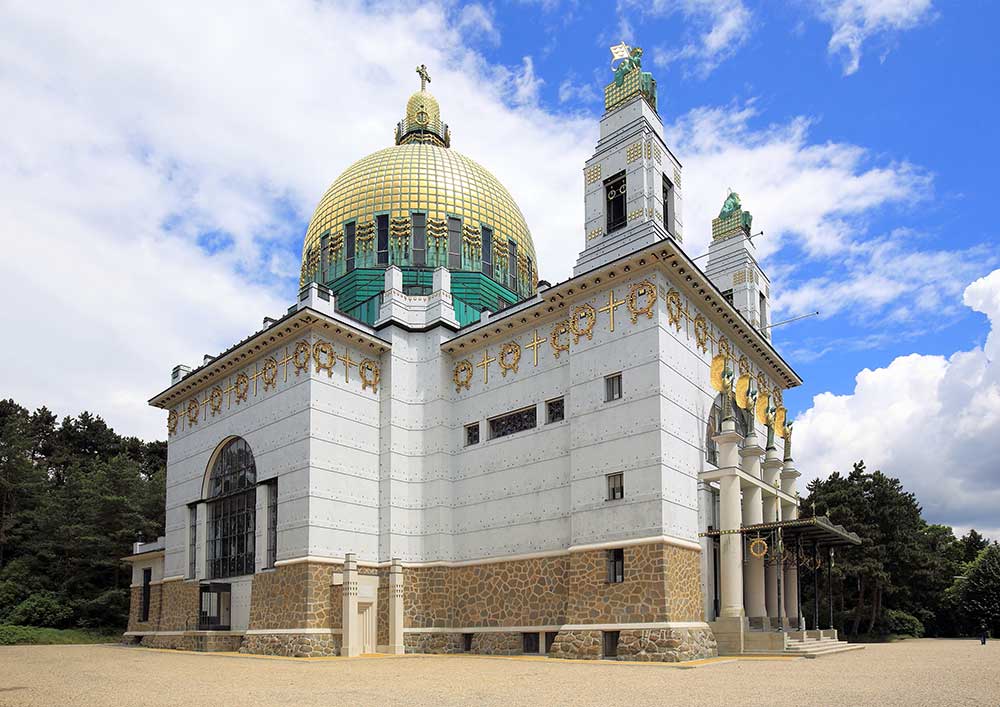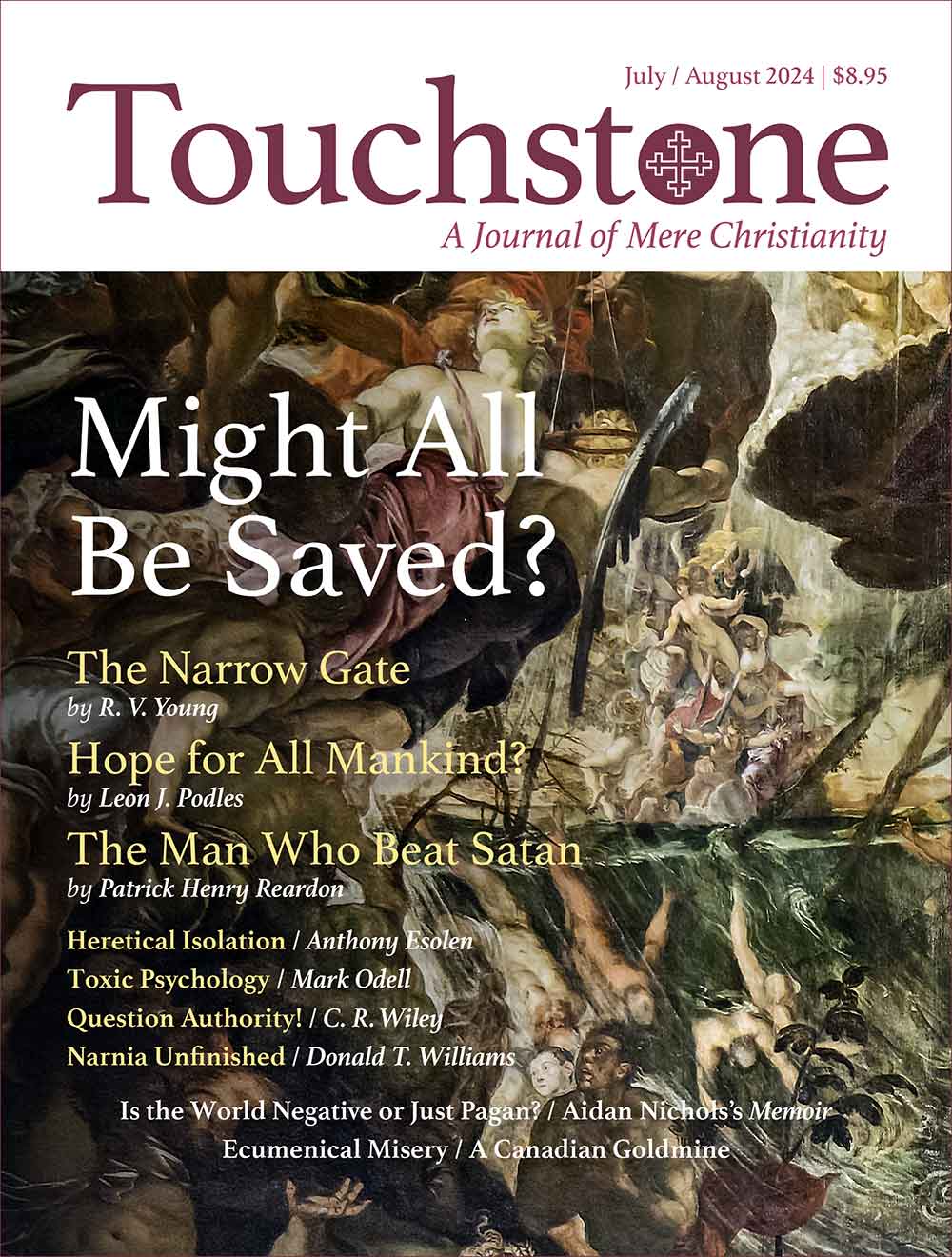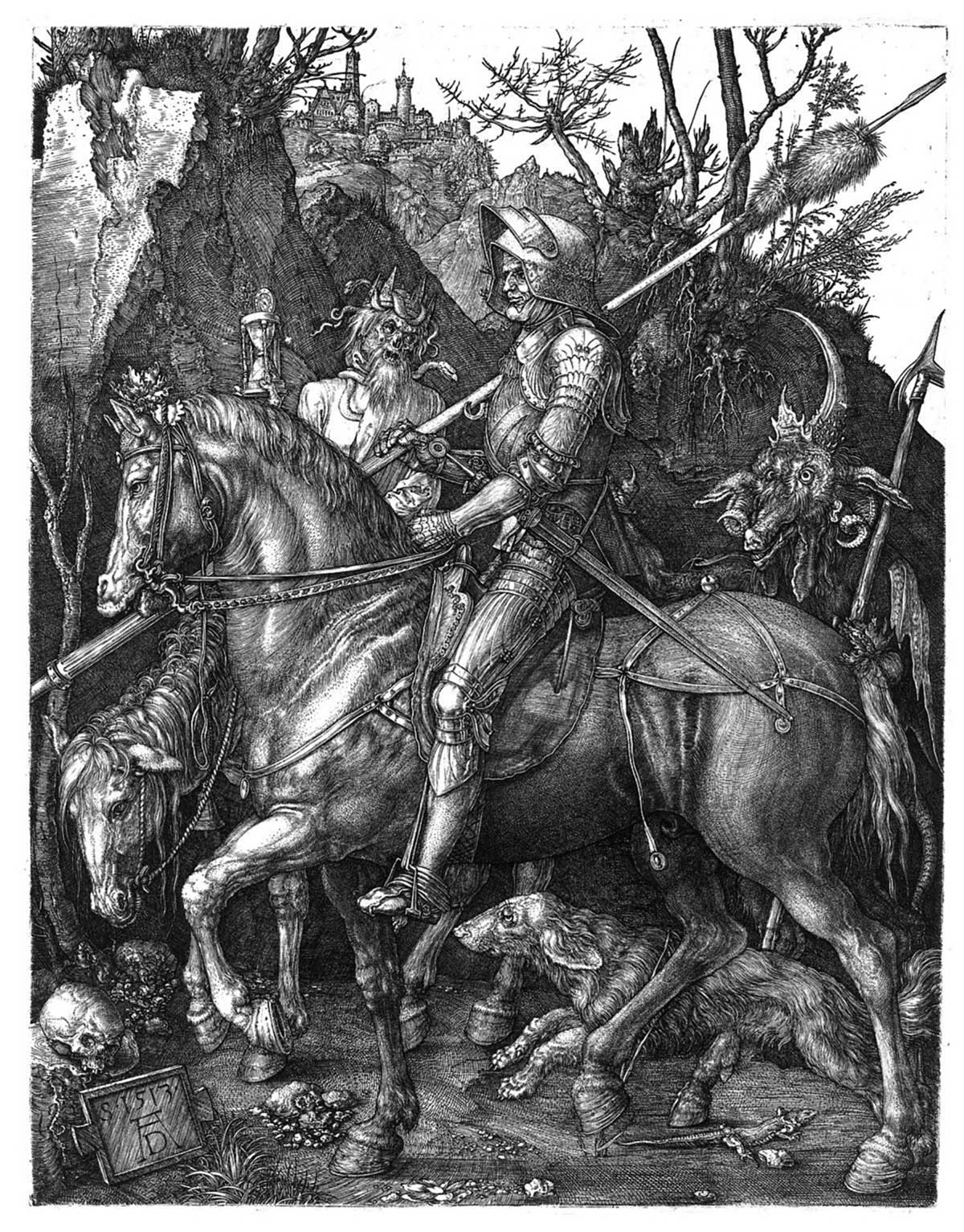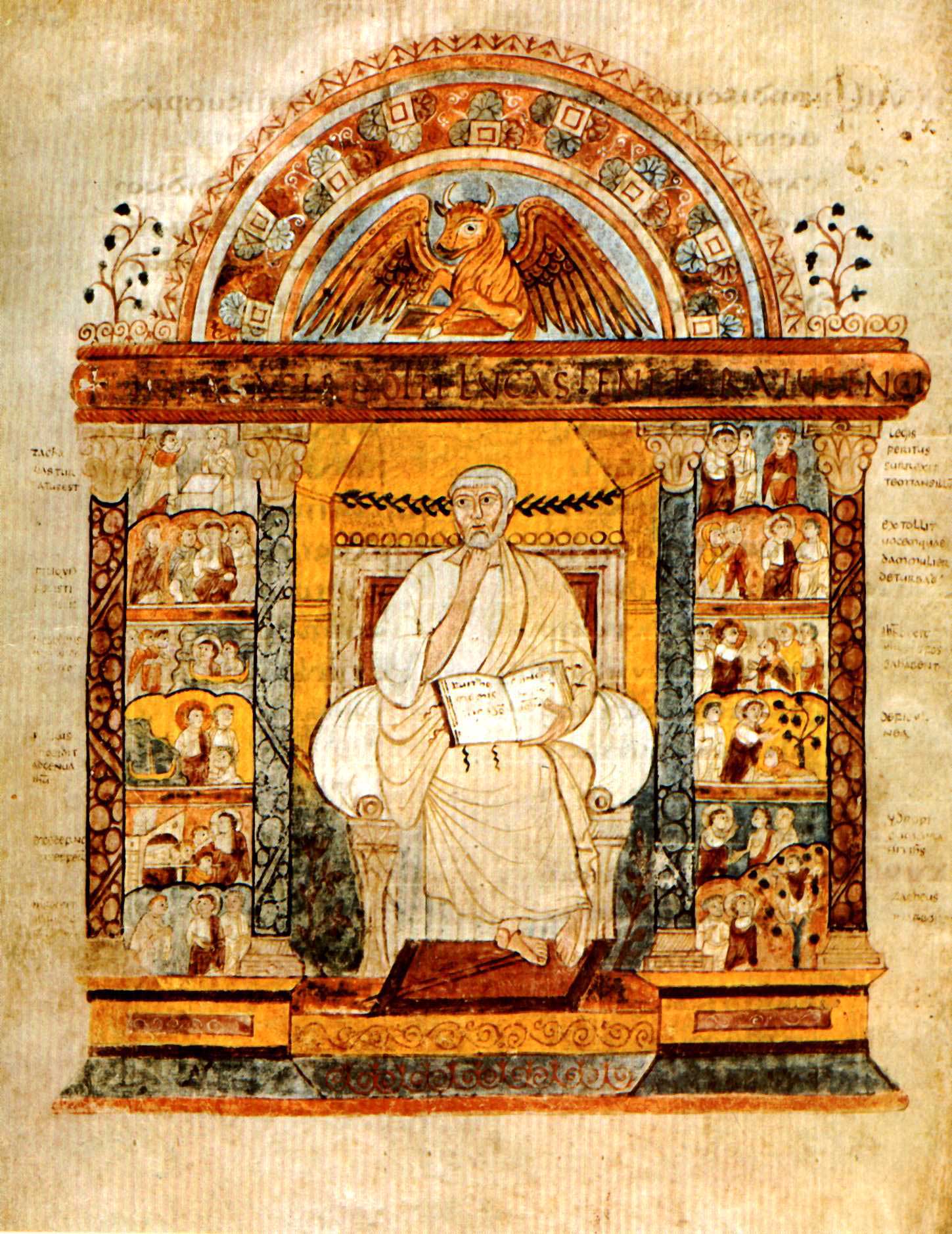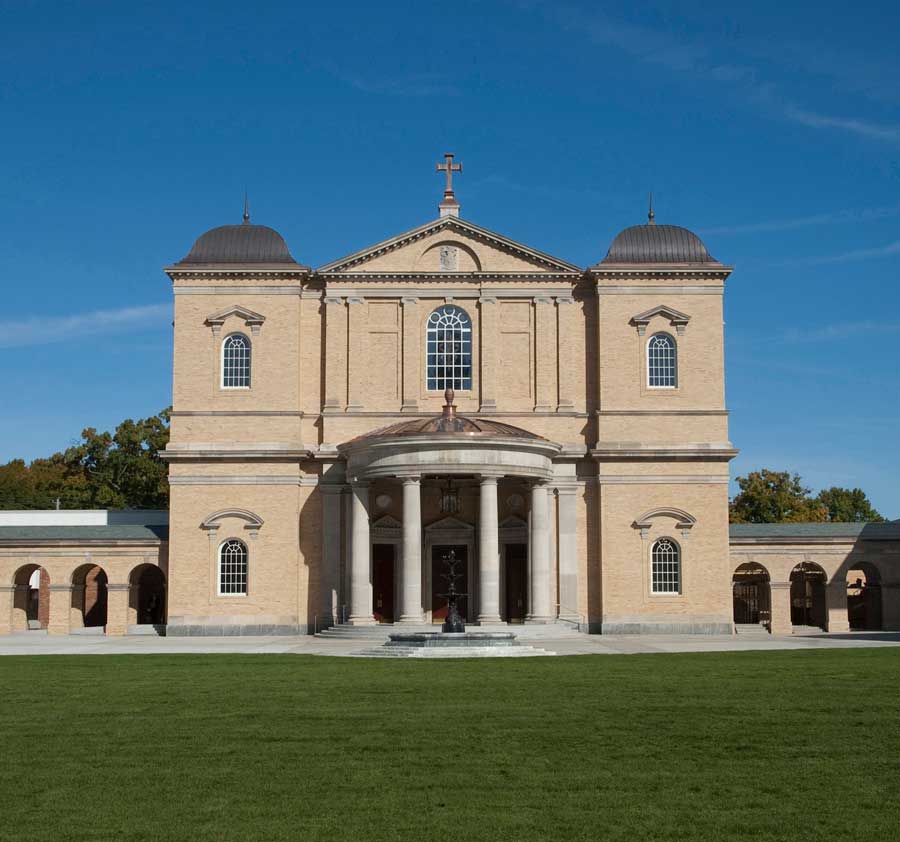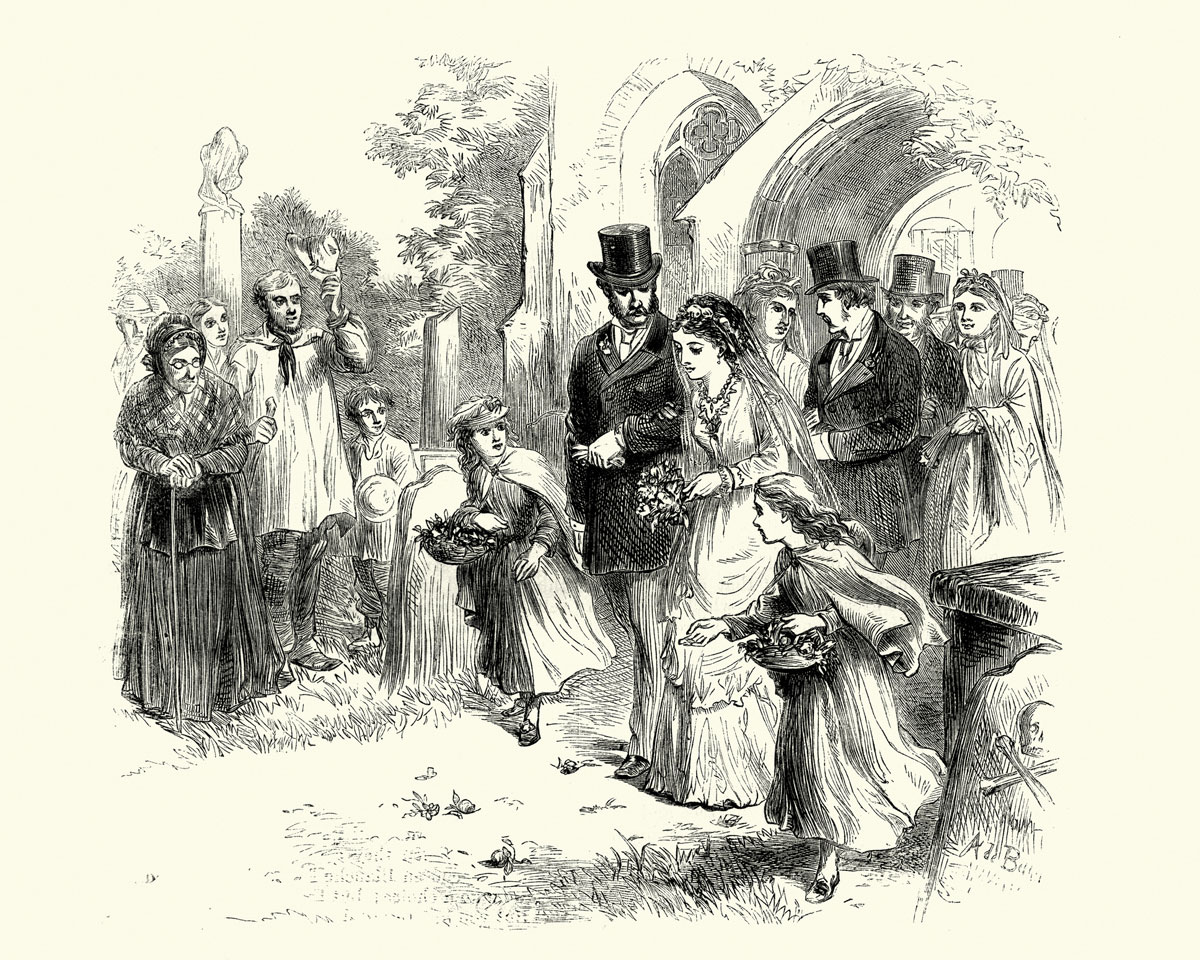Otto Wagner's Kirche am Steinhof
The Kirche am Steinhof, technically the Church of St. Leopold, sits on the grounds of the Steinhof Psychiatric Hospital in Penzing, Austria, just outside Vienna. Designed by Otto Wagner (1841–1918), it was built in 1907 and is pleasingly simple in design, with flat white walls minimally decorated in gold. Four golden angels with upward-swooping wings adorn the facade over the door, in front of a flat frieze of golden wreaths and crosses. Above them rise a golden dome and a cupola set with a cross. Two towers at the corners are topped with statues of the patron saints of lower Austria, Leopold and Severin, both seated, not standing. In style and design, the church is closely akin to the Sezession building in Vienna, the flagship of the artists of the New Art, Art Nouveau, who declared themselves in secession from the academic art world of the traditional academies.
Beginning in the 1880s, Art Nouveau was a revolt against what the young architects of the movement saw as the hidebound historicism of both Neoclassicism and Gothic Revival, as well as the strictures of academic study. They championed the integration of all the arts and of modern materials and building methods into their buildings, and like the other artists of the movement, they emphasized organic form and curving line; theirs was an art of youth, beauty, and exuberance.
New in Concept & Design
Otto Wagner’s Art Nouveau church is set at the top of a hill and is approached by a zigzag path that connects a series of small, domestic-scale hospital buildings and houses for the patients. This was an era of new kinds of medical treatment in Vienna, particularly psychiatric medicine under the tutelage of Dr. Sigmund Freud. For one thing, the hospital is set outside the city, in the exurb of Penzing in the Vienna Woods, a setting thought to be calming. The small scale of the buildings, and of the church, marked a shift from the grand institutional asylums of the nineteenth century to a more normalizing atmosphere. Furthermore, Wagner’s flat white surfaces, simple decoration, and, above all, the welcoming posture of the seated saints, reduce any visual agitation that might disturb the composure of its users.
THIS ARTICLE ONLY AVAILABLE TO SUBSCRIBERS.
FOR QUICK ACCESS:
Mary Elizabeth Podles is the retired curator of Renaissance and Baroque art at the Walters Art Museum in Baltimore, Maryland. She is the author of A Thousand Words: Reflections on Art and Christianity (St. James Press, 2023). She and her husband Leon, a Touchstone senior editor, have six children and live in Baltimore, Maryland. She is a contributing editor for Touchstone.
subscription options
Order
Print/Online Subscription

Get six issues (one year) of Touchstone PLUS full online access including pdf downloads for only $39.95. That's only $3.34 per month!
Order
Online Only
Subscription

Get a one-year full-access subscription to the Touchstone online archives for only $19.95. That's only $1.66 per month!
bulk subscriptions
Order Touchstone subscriptions in bulk and save $10 per sub! Each subscription includes 6 issues of Touchstone plus full online access to touchstonemag.com—including archives, videos, and pdf downloads of recent issues for only $29.95 each! Great for churches or study groups.
Transactions will be processed on a secure server.
more on art from the online archives
more from the online archives
calling all readers
Please Donate
"There are magazines worth reading but few worth saving . . . Touchstone is just such a magazine."
—Alice von Hildebrand
"Here we do not concede one square millimeter of territory to falsehood, folly, contemporary sentimentality, or fashion. We speak the truth, and let God be our judge. . . . Touchstone is the one committedly Christian conservative journal."
—Anthony Esolen, Touchstone senior editor





